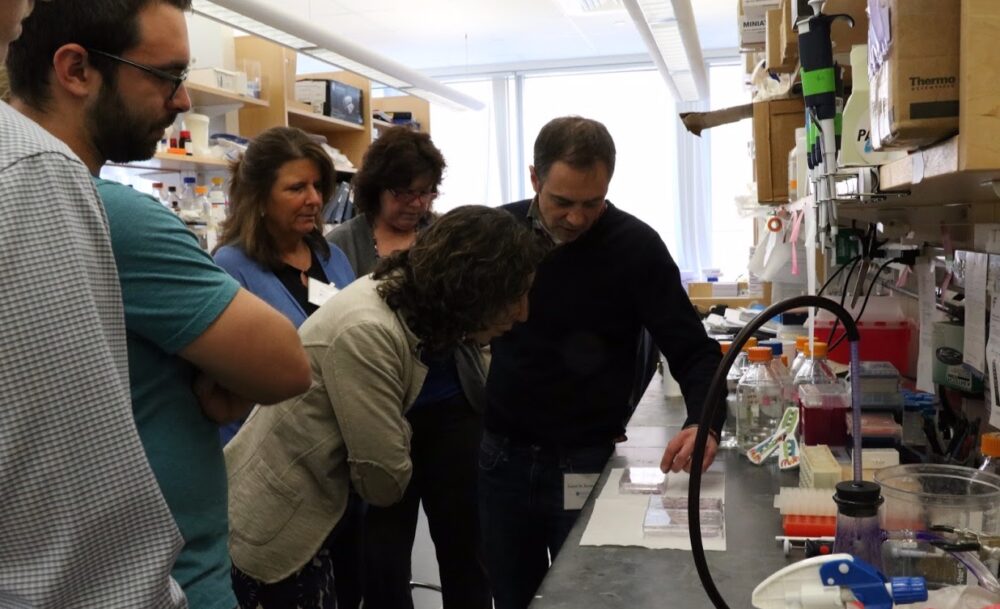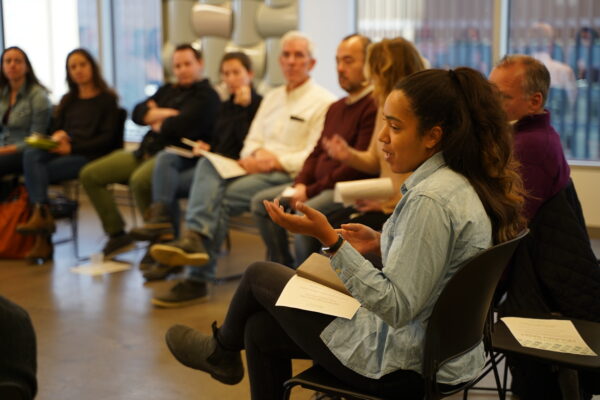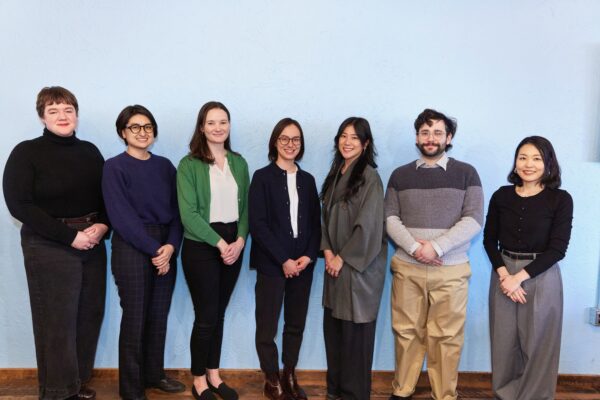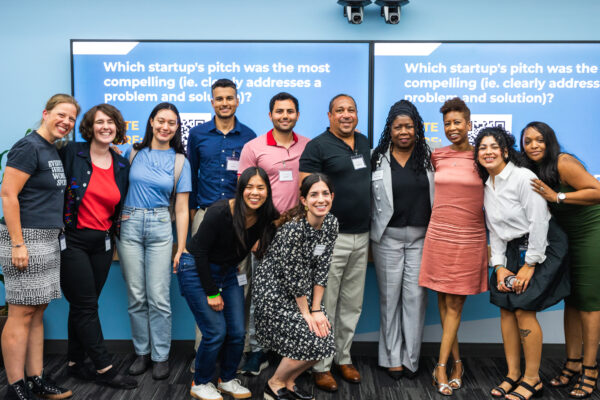Cambridge-based TargetCancer Foundation connects rare cancer researchers, patients, and advocates.
Paul Poth had a successful career and family when, at only 38, he was diagnosed with cholangiocarcinoma, a cancer affecting the bile ducts of the liver. Though young, otherwise healthy, and living near some of the top cancer hospitals in the country, Paul’s prognosis was bleak. Doctors could offer him no effective treatments, because his particular cancer was so rare that research hadn’t been devoted to it.
Unwilling to accept that nothing could be done for people with cholangiocarcinoma like him, Paul, in the midst of his own illness, started a nonprofit that would raise money from the community to fund rare cancer research. Paul made his first grant to Massachusetts General Hospital in 2009 before passing shortly after.
Yet ten years later, his legacy lives on at CIC Cambridge. Leading the charge at TargetCancer Foundation, a CIC member since 2016, is Jim Palma, Paul’s brother-in-law.
“Without research, there are no effective treatments,” says Palma. And without funding, there is no research.
Funding is difficult to secure without existing research to prove a project’s worthiness — a frustrating catch-22. Meanwhile, more prevalent conditions like breast or lung cancer naturally garner more attention from donors and have larger advocacy bases.
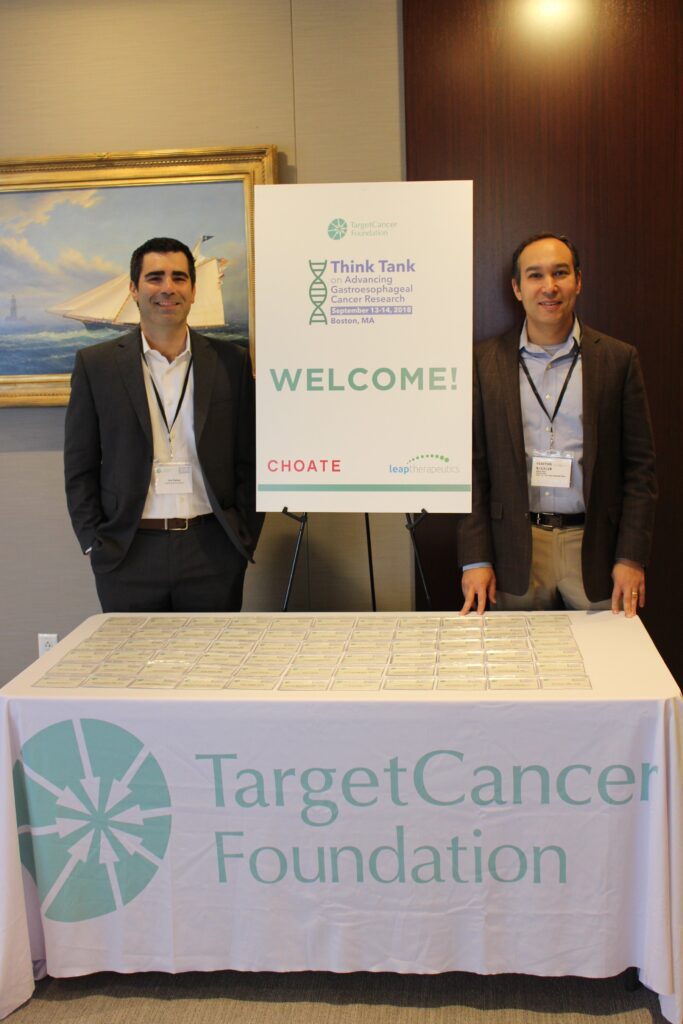
TargetCancer Foundation exists to fill this gap.
Since Paul’s first grant in 2009, the foundation has continued to financially support research that they believe will lead to effective treatments and better outcomes for rare cancer patients. Grants generally range from $50K to $100K, often given to early stage investigators who can use these funds to jumpstart long-term careers.
Though TargetCancer likes to sustain relationships with their researchers over time, they’re pleased to find that the work catalyzed by these grants often allows researchers to attract more funding from other sources as well. In other words, investing in scrappy, passionate researchers creates a ripple effect that strengthens the entire field.
With time, TargetCancer has also taken on a greater community role: building connections between various advocacy organizations, co-funding grants, and serving as a resource for patients navigating the uncertainty of a rare cancer diagnosis.
“When you’re diagnosed with a rare form of cancer, it can be very isolating because you’ve likely never heard of it or known people with it,” says Palma.
The foundation has already seen signs of success. In addition to greater funding overall, Palma describes success in terms of papers published, expansion of labs devoted to rare cancers, clinical trials, and, most of all, actual treatments. Many cholangiocarcinoma patients now have a few different treatment options that didn’t exist a decade ago during Paul’s battle with the disease.
The goal, of course, is to maximize the chance of survival for people affected by rare cancers. But there is another less obvious yet highly promising implication of the kind of research that TargetCancer facilitates. Discoveries in the realm of rare cancers could actually benefit cancer research overall, according to Palma.
“What’s changed a lot in cancer research is an increased focus on the molecular basis for cancer,” explains Palma. “Traditionally we thought of the affected organ as the driving force for cancer. Now it’s becoming clear that different genetic mutations and abnormalities can drive cancer, and drugs are being developed to target those particular mutations.” This is in contrast to chemotherapy, which attacks cells throughout the whole body.
When specific genetic factors are isolated as causes for cancer and drugs get developed to target them, researchers can apply those findings to other forms of cancer that might share similar genetic causes.
“Rather than starting from scratch in every type of cancer, now you can leverage work that someone has done in another area and speed up that process,” says Palma.
It’s a promising time for cancer research. Still, change doesn’t come easy. “It can be tough looking five, ten years ahead and also balancing that with the urgency of our work to help patients today,” says Palma. And despite developments in research and new options for rare cancer patients, “the treatment outlook remains challenging,” he says. It will take more time, more experimentation, and more funding to translate research progress into higher survival rates.
As TargetCancer marks a decade on the books, Palma looks towards greater patient engagement in the research process. He’s determined to continue funding research that generates results, and in addition, he wants to help those who reach out to his foundation for support to get involved in this collective effort.
“For many patients,” Palma says, “it can be very important to be part of the research process and feel like they’re pushing things forward to help other people.”
Photos courtesy of Jim Palma
